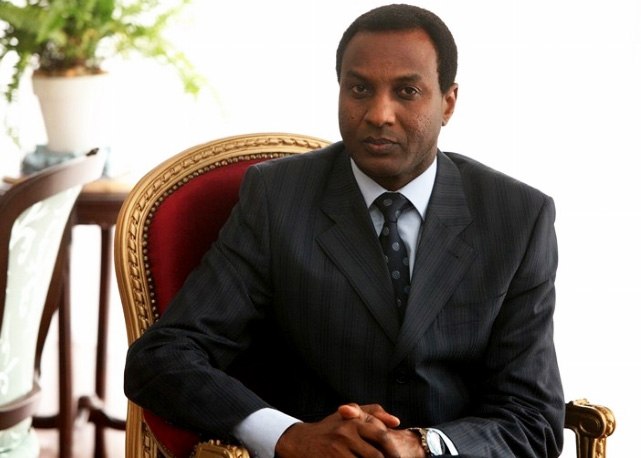There are no products in your shopping cart.
| 0 Items | £0.00 |


MEMBERS of the new military junta in Niger Republic have appointed former economy minister Lamine Zeine as the country’s new prime minister as they defy the rest of the world and refuse to back down.
Nearly two weeks after seizing power, the coup plotters have refused to heed calls from the Economic Community of West African States (Ecowas) to stand down. Like the US, France and the rest of the world, Ecowas has told the junta to reinstate ousted democratically-elected President Mohamed Bazoum, who was arrested earlier this month.
President Bazoum was detained by the members of his presidential guard and General Abdourahamane Tchiani has been named as the new head of state. President Bazoum’s election win in 2021 marked a relatively peaceful transfer of power, capping years of military coups following Niger’s independence from France in 1960.
Ecowas has threatened to use military force to remove the regime if need be and Western nations have already evacuated their citizens. However, the junta has remained defiant and has even refused to meet with a delegation of Ecowas emissaries sent to negotiate a peaceful handover.
In a show of utter defiance, the regime has named Mr Zeine as the new prime minister and will now expect him to head a government. Mr Zeine was formerly the minister of economy and finance for several years in the cabinet of then-president Mamadou Tandja, who was ousted in 2010,and most recently worked as an economist for the African Development Bank in Chad.
Under President Bazoum, Niger Republic had been one of the last strategic partners of the West in the fight against the advance of Islamist terrorists in the Sahel. There are fears that a region already plagued with insurgency from fearsome terror groups such as al Qaeda, Isis and Boko Haram could be plunged into an all out war that further destabilises the area in the event of war4.
General Tchiani has already asked neighbouring Mali, also governed by the military for support in the event of Ecowas military intervention. Mali and Burkina Faso, led by soldiers who seized power forcefully, have stated that any military intervention in Niger Republic would be seen as a declaration of war.
Ecowas' last notable instance on intervention was in 2017, when it deployed military forces in Gambia to remove President Jammeh who did not want to give up power after losing elections. A show of force at the border compelled President Jammeh to step down, leading to a swift resolution of the crisis.
This latest event has raised the question of whether similar tactics would be successful in the current situation in Niger. Ecowas has also deployed peacekeeping forces, mainly from Nigeria to war zones such as Sierra Leone and Liberia.
On Thursday, Ecowas leaders will meet again in Abuja to debate the matter. Niger Republic has huge regional significance as it is the largest country in West Africa and a vital gateway between the Sahel and the rest of the continent and possesses significant natural resources, with uranium being its most notable asset.